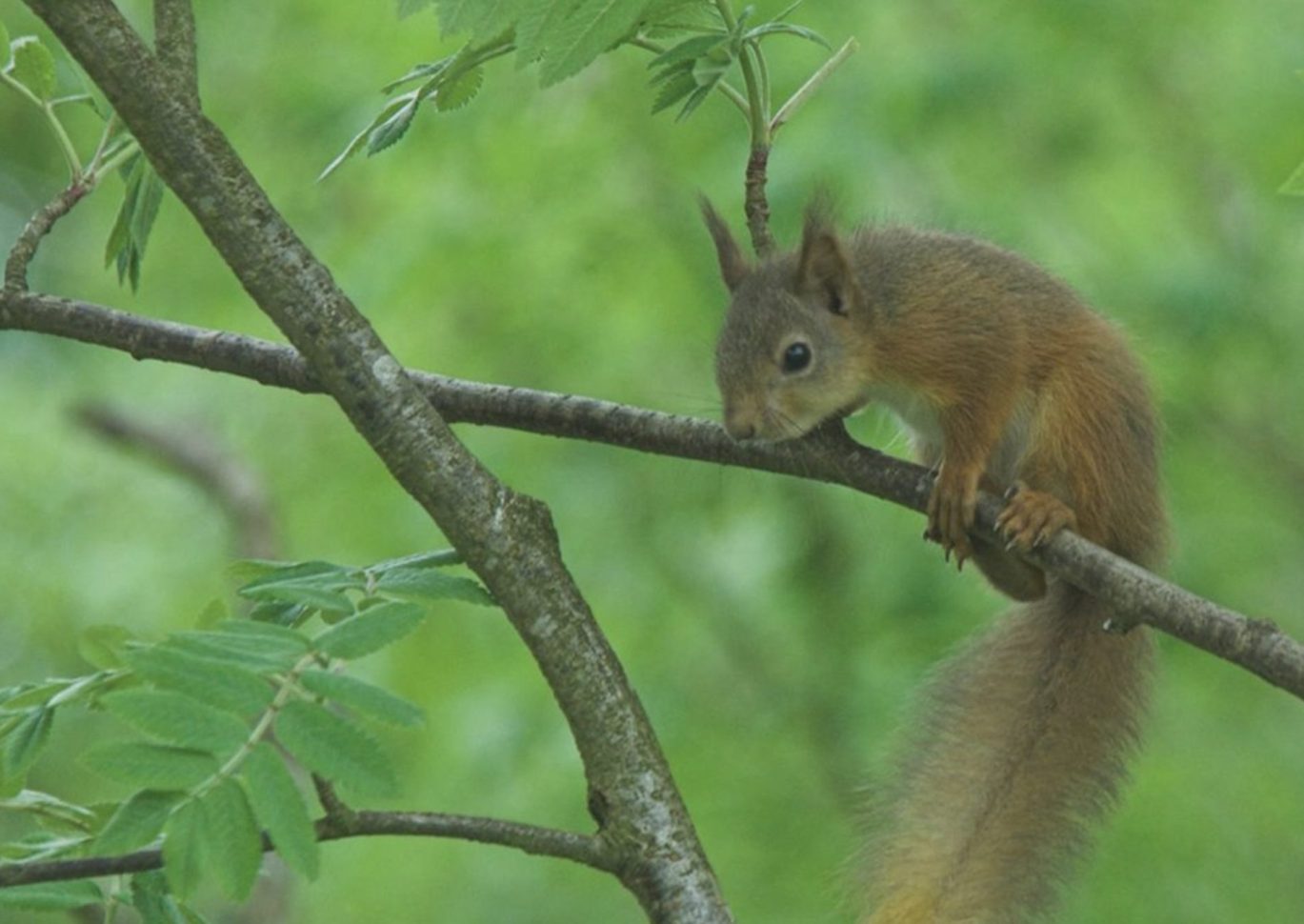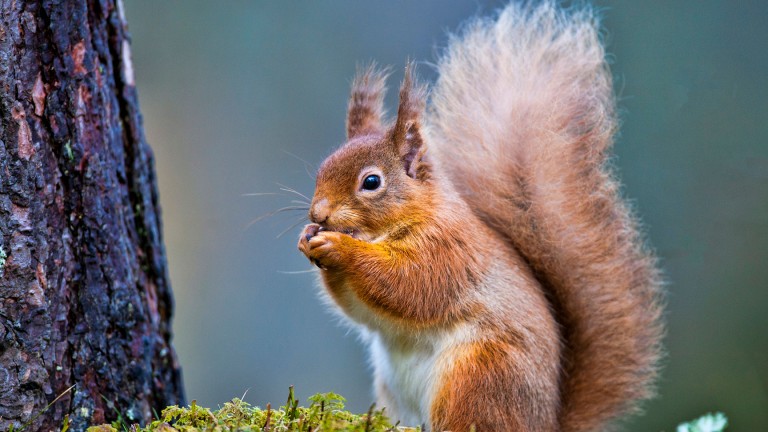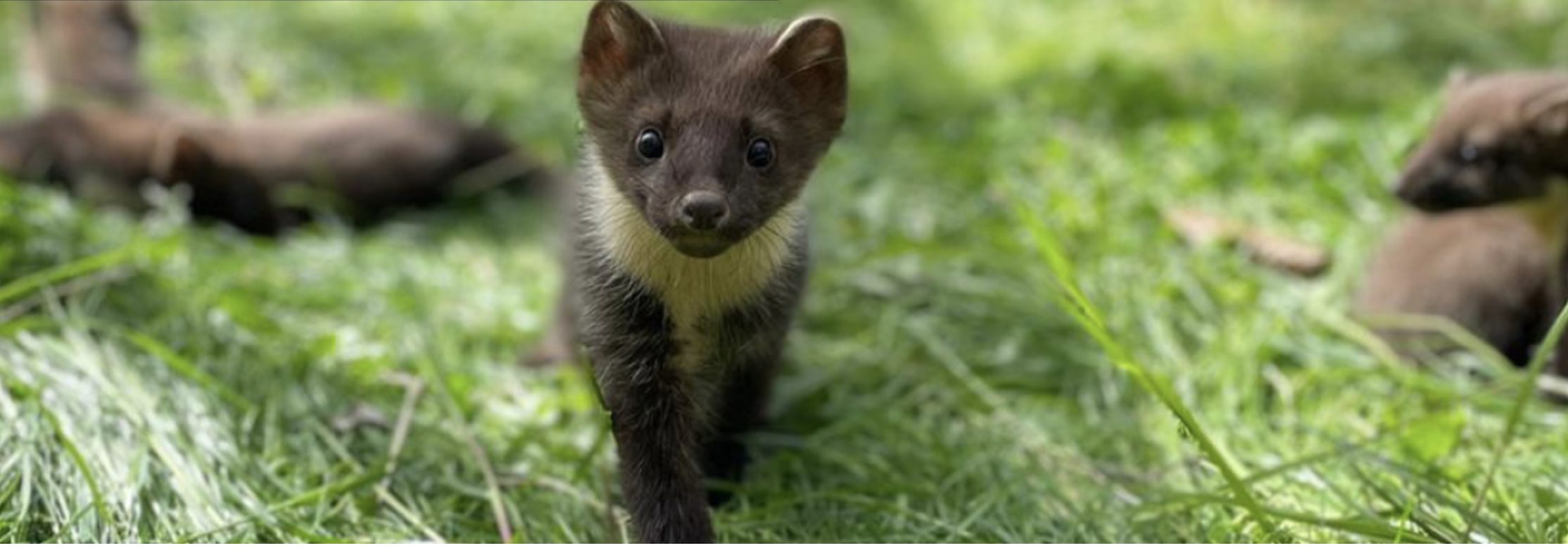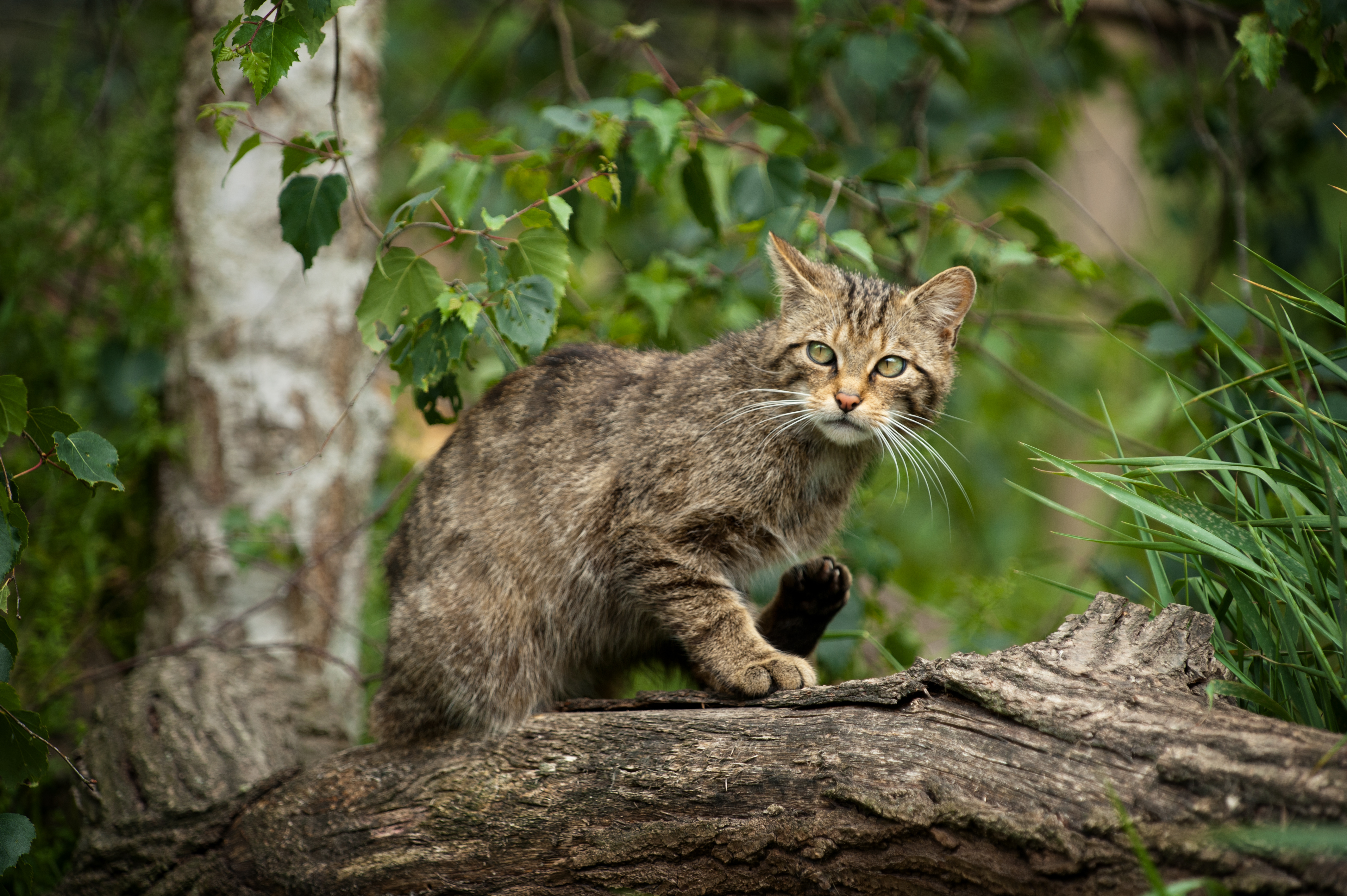
Squirrel
Understanding squirrels: their homes, diet, young, and the challenges they face
Worldwide, there are over two hundred species of squirrel but Scotland is home to just two of them; the native red squirrel and the non-native grey squirrel.
Red squirrels are easy to recognise from their fiery, red fur and bushy tails. Sometimes they grow long tufts of fur on their ears.
Red squirrels are fully protected by law whereas grey squirrels are a non-indigenous species. Although grey squirrels have almost no legal protection, it is still an offence to cause a grey squirrel harm or unnecessary suffering.
Grey squirrels are the larger of the two species. Their coat is mostly grey but may have red-brown patches, particularly around the face and legs.
Where squirrels live
Squirrels can be spotted in Scotland’s woodlands, parks and gardens. They build messy nests, called dreys, in the trees using just about anything they can get their paws on such as twigs, leaves, moss, feathers, grass, bark and pine needles.
Dreys are usually located in the fork of a branch, tight against the tree trunk at least six metres up.
They can even repurpose an existing hole in a tree trunk as their den, lining it with similar materials.
What squirrels eat
Not only do trees offer protection but they are also a fantastic source of food for squirrels. Their diet consists of seeds, nuts, acorns, fruit, tree shoots, bark, lichen and fungi.
Squirrels in towns and villages also enjoy visiting bird feeders!
That’s wild!
Squirrels will bury seeds and nuts in autumn in preparation for the winter months when food is scarce.
When baby squirrels are born
Squirrels can breed from December through to October. As part of their courtship behaviour, males can be seen chasing females through the trees with the hopes of mating. Females often mate with more than one partner and give birth to their first litter between February and April. Squirrels may have a second litter between May and August.
Red squirrels can breed all year round, giving birth to up to six babies, known as kits, per litter. They are born completely blind and deaf, with no fur. Within a few weeks, their fur will grow in and they will begin foraging for their own food when they are fully weaned after around twelve weeks.
If you come across a new born squirrel on their own, please call our helpline immediately on 03000 999 999. Kits with no fur will not survive and need expert care at our National Wildlife Rescue Centre.
Common problems squirrels face
Sick or injured animals
If you have found a sick or injured squirrel, please read our advice on the Wildlife Rescue pages. If you can’t find what you’re looking for, please call our Helpline on 03000 999 999, open from 8am to 8pm every day.
Signs to look out for include:
- Obvious injuries
- Caught and injured by another animal
- Lethargic or not moving
- Tangled in litter
- Surrounded by flies
- Breathing problems
- Twitching or falling over
- Not reacting to noise
Baby squirrels (kits) out of the nest: If you come across a squirrel kit on their own, please place a box over them and call our helpline immediately on 03000 999 999. Kits with no fur will not survive and need expert care at our National Wildlife Rescue Centre.
Red squirrel population decline
The flash of a red squirrel leaping from branch to branch is an unforgettable but increasingly rare sight in Scottish woodlands. Red squirrels are fully protected in Scotland, meaning it is illegal to deliberately or recklessly kill, injure or disturb them. It is also an offence to disturb or damage their dreys including cutting down trees without surveying.
Scotland is home to around 75% of the UK’s red squirrel population and sadly, they have almost disappeared from England and Wales. Once abundant, there are now approximately only 120,000 native red squirrels in Scotland.
This catastrophic population decline is primarily due to competition for food and living space from the invasive, non-native grey squirrel. Grey squirrels can also carry squirrelpox – a virus that greys can live with but is sadly lethal to reds.
Unfortunately, if grey squirrels come into our care, we cannot release them and by law, they must be put to sleep. The UK Government enforces legislation that determines that non-native, invasive species cannot be released into the wild; they must be humanely euthanised and we must operate within the law.
Loss of natural habitat
Woodland areas being destroyed or damaged has a huge impact of squirrel populations who rely on forests for shelter and food.
Road traffic accidents
Sadly, many squirrels are hurt or killed in road traffic collisions every year. Click here for further advice. You can report road fatalities involving squirrels here.
Tangled or stuck
Ordinary items like football nets, fencing and even litter can pose a threat to squirrels. If you come across a squirrel who is trapped somewhere and can’t get free on their own, please contact our helpline on 03000 999 999.
It is common for squirrels to climb to safety when they feel threatened. They may appear to be ‘stuck’ on the side of a house or building, on a windowsill or on guttering and pipes. Often they are not hurt and do not need our help. They may be calling out to warn other squirrels in the area or to check that it is safe to come down. If there is no obvious sign of injury, leave the squirrel alone and try not to draw attention to them. They often will not come down until they feel safe or it begins to get dark. If the squirrel is still in the same place the next morning, please call our helpline on 03000 999 999.
Predation from other animals
Squirrels can be preyed upon by other mammals like pine martens but may also be caught and injured by domestic animals.
If you find an injured squirrel, please contain the animal by placing a box over them to prevent them wandering off and call our helpline on 03000 999 999. Our helpline staff may ask you to place the squirrel inside a box.
Please note, it is an offense to release non-native, invasive species back into the wild. If we attend a contained grey squirrel, by law we must humanely euthanise the animal.
Squirrelpox
What is Squirrelpox?
Squirrelpox is a viral disease carried by grey squirrels that is lethal to red squirrels. The disease is transmitted through direct contact with infected squirrels or by exposure to their bodily fluids, or contaminated bedding.
What are the symptoms?
- Lethargy and difficulty moving or feeding.
- Visible skin lesions or swellings, often around the face, ears and limbs
How can I help prevent the spread?
- Avoid direct contact with wild squirrels and refrain from feeding them.
- Regularly clean wildlife feeding stations with disinfectant.
If you suspect a squirrel has Squirrelpox, contact our animal helpline on 03000 999 999 to report.

Together, we care for them
With your support, we can continue to care for Scotland’s animals every minute of every day. Your donation funds campaigns, research and projects to help give animals the life they deserve. Every £1 matters to all animals in our care.


